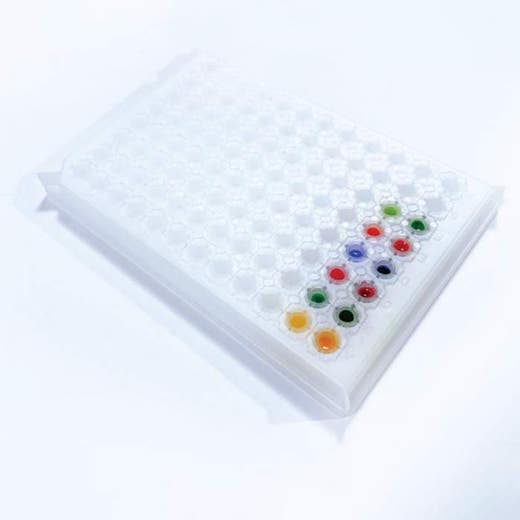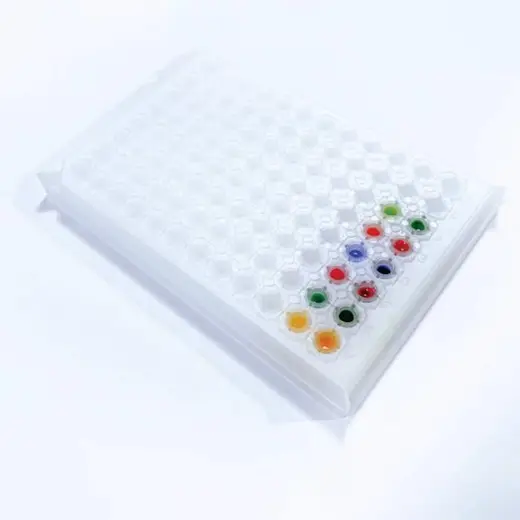
FlexDrop Source Plates, 500 µL, 100 µM pore size, 10/PK



FlexDrop Source Plates, 500 µL, 100 µM pore size, 10/PK



FlexDrop Source Plates, 500 µL, 100 µM pore size, 10/PK



The FlexDrop™ 500 µL Source Plate is a proprietary consumable designed for use in the FlexDrop non-contact dispenser. It enables seamless, non-contact transfer of liquids into a SBS destination plate.
| Feature | Specification |
|---|---|
| Capacity | 100 µM pore size |
| Instrument Compatibility | FlexDrop Plus |
| Sterility | Non-Sterile |
| Plate Format | 96 wells |
| Well Shape | Deep-well |
| Feature | Specification |
|---|---|
| Capacity | 100 µM pore size |
| Instrument Compatibility | FlexDrop Plus |
| Sterility | Non-Sterile |
| Plate Format | 96 wells |
| Well Shape | Deep-well |
Product information
Overview
This FlexDrop 500 µL Source Plate is a proprietary 96 well plate. It has a pore size of 100 µM and holds a volume of 500 µL per well. It enables rapid transfer of up to 500 µL of liquid from any of its 96 source wells to any 96, 384, or 1536 SBS standard microplate.
Specifications:
- SBS Format: 96-well plate
- Max volume per well: 500 µL
- Pore size: 100 µm
- Quantity: 10 per Pack
Specifications
| Capacity |
100 µM pore size
|
|---|---|
| Plate Format |
96 wells
|
| Volume |
500.0 µL
|
| Well Shape |
Deep-well
|
| Application |
Cocktail Prep
Compound management
Flow Cytometry
Library Prep
NGS
|
|---|---|
| Automation Compatible |
Yes
|
| Instrument Compatibility |
FlexDrop Plus
|
| Model |
FlexDrop Source Plates, 500 µL, 100 µM pore size, 10/PK
|
| Research Areas |
Drug Discovery
|
| Sterility |
Non-Sterile
|
| Unit Size |
10/PK
|
Video gallery

FlexDrop Source Plates, 500 µL, 100 µM pore size, 10/PK

FlexDrop Source Plates, 500 µL, 100 µM pore size, 10/PK

Resources
Are you looking for resources, click on the resource type to explore further.
The ADP-Glo™ Kinase Assay : a powerful tool for drug discovery
The ADP-Glo™ Kinase Assay is a crucial tool in drug discovery...
Unlocking the Power of Precision
The pursuit of more accurate and predictive in vitro cancer models has led to a growing interest...


How can we help you?
We are here to answer your questions.






























